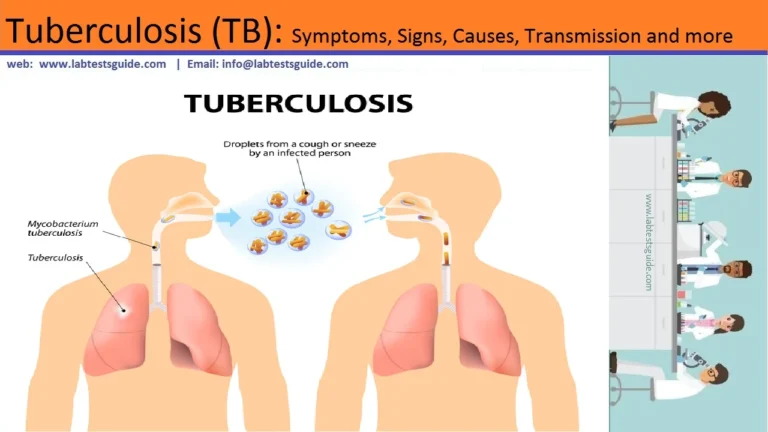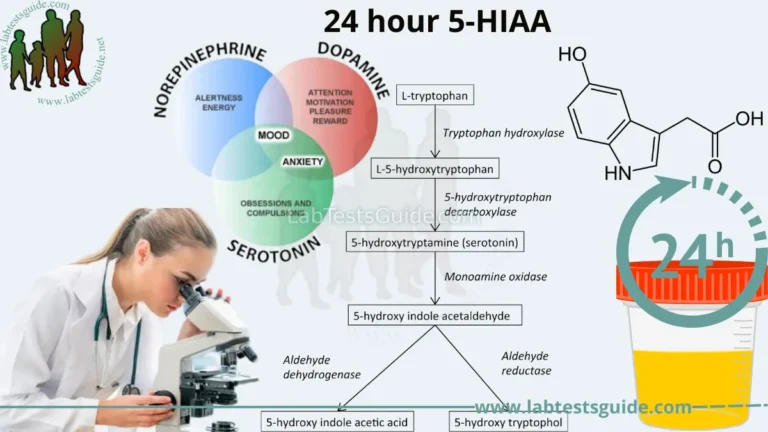Colon cancer, also known as colorectal cancer, is a type of cancer that starts in the colon or rectum. It is one of the most common types of cancer worldwide, and it typically affects people over the age of 50.

The colon and rectum are part of the large intestine, which is responsible for absorbing water and electrolytes from food and eliminating waste from the body. Colon cancer occurs when abnormal cells grow and divide uncontrollably in the lining of the colon or rectum.
Some of the risk factors for colon cancer include age, a family history of the disease, a history of inflammatory bowel disease, a diet high in red or processed meats, and a sedentary lifestyle. Symptoms of colon cancer may include changes in bowel habits, blood in the stool, abdominal pain, and unintended weight loss.
Treatment options for colon cancer may include surgery, chemotherapy, radiation therapy, or a combination of these approaches, depending on the stage and location of the cancer. Early detection through regular screening tests, such as colonoscopies, can improve the chances of successful treatment and survival.
Types of Colon Cancer:
There are several types of colon cancer, which are classified based on the type of cell where the cancer starts. The most common types of colon cancer include:
- Adenocarcinoma: This is the most common type of colon cancer, accounting for more than 95% of cases. It develops in the cells that produce the mucus that lines the inside of the colon.
- Carcinoid tumor: This is a rare type of colon cancer that starts in the hormone-producing cells of the colon. It is often slow-growing and may not cause symptoms for many years.
- Gastrointestinal stromal tumor (GIST): This is a rare type of colon cancer that starts in the muscle or connective tissue of the colon. It may not cause symptoms until it grows large enough to affect nearby organs.
- Lymphoma: This is a rare type of colon cancer that starts in the immune cells of the colon. It may not cause symptoms until it has spread to other parts of the body.
- Sarcoma: This is a rare type of colon cancer that starts in the connective tissue or muscle of the colon. It may not cause symptoms until it grows large enough to affect nearby organs.
- Squamous cell carcinoma: This is a rare type of colon cancer that starts in the thin, flat cells that line the colon. It is often aggressive and may spread quickly to other parts of the body.
The most common type of colon cancer is adenocarcinoma, and it is the type that is most often detected during routine colon cancer screening tests, such as a colonoscopy.
Symptoms of Colon Cancer:
The symptoms of colon cancer may vary depending on the stage and location of the cancer. Some people with early-stage colon cancer may not experience any symptoms, which is why regular screening tests are important for early detection. However, some of the common symptoms of colon cancer may include:
- Changes in bowel habits, such as diarrhea or constipation that lasts for more than a few days.
- Blood in the stool or rectal bleeding.
- Abdominal pain or cramping that persists for several weeks.
- Weakness or fatigue.
- Unintended weight loss.
- Feeling like you need to have a bowel movement even after having one.
- Narrow stools.
- A feeling that the bowel does not empty completely after a bowel movement.
- Abdominal discomfort, bloating, or gas.
If you experience any of these symptoms, it is important to talk to your doctor, especially if you are over the age of 50 or have a family history of colon cancer. Your doctor may recommend further testing, such as a colonoscopy, to evaluate your symptoms and determine the cause. Early detection and treatment of colon cancer can improve the chances of successful treatment and survival.
Causes of Colon Cancer:
The exact cause of colon cancer is not known, but it is believed to be caused by a combination of genetic and environmental factors. Some of the known risk factors for colon cancer include:
- Age: Colon cancer is more common in people over the age of 50.
- Family history: People with a family history of colon cancer or inherited genetic mutations such as Lynch syndrome, familial adenomatous polyposis (FAP), or MYH-associated polyposis (MAP) have a higher risk of developing the disease.
- Personal history of colon cancer or polyps: People who have had colon cancer or certain types of polyps have an increased risk of developing the disease again.
- Inflammatory bowel disease: People with a history of inflammatory bowel disease, such as ulcerative colitis or Crohn’s disease, have a higher risk of developing colon cancer.
- Diet: A diet high in red or processed meats, low in fiber, fruits, and vegetables, and high in fat may increase the risk of colon cancer.
- Sedentary lifestyle: Lack of physical activity and a sedentary lifestyle may increase the risk of colon cancer.
- Obesity: Being overweight or obese increases the risk of developing colon cancer.
- Smoking: Smoking tobacco may increase the risk of colon cancer.
It is important to note that having one or more of these risk factors does not necessarily mean that a person will develop colon cancer. However, making lifestyle changes, such as adopting a healthy diet and exercising regularly, can help reduce the risk of colon cancer. Additionally, regular screening tests, such as colonoscopies, can help detect colon cancer early, when it is most treatable.
Risk Factors of Colon Cancer :
The risk factors of colon cancer can be divided into modifiable and non-modifiable factors. Non-modifiable risk factors are factors that cannot be changed, while modifiable risk factors can be changed with lifestyle modifications. Here are some of the common risk factors for colon cancer:
Non-modifiable risk factors:
- Age: The risk of colon cancer increases with age, with the majority of cases diagnosed in people over the age of 50.
- Family history: People with a family history of colon cancer, especially in first-degree relatives (parents, siblings, children), have an increased risk of developing the disease.
- Inherited genetic mutations: Certain inherited genetic mutations, such as Lynch syndrome, familial adenomatous polyposis (FAP), or MYH-associated polyposis (MAP), can increase the risk of colon cancer.
- Personal history of colon cancer or polyps: People who have had colon cancer or certain types of polyps have an increased risk of developing the disease again.
- Inflammatory bowel disease: People with a history of inflammatory bowel disease, such as ulcerative colitis or Crohn’s disease, have an increased risk of developing colon cancer.
Modifiable risk factors:
- Diet: A diet high in red or processed meats, low in fiber, fruits, and vegetables, and high in fat may increase the risk of colon cancer.
- Sedentary lifestyle: Lack of physical activity and a sedentary lifestyle may increase the risk of colon cancer.
- Obesity: Being overweight or obese increases the risk of developing colon cancer.
- Smoking: Smoking tobacco may increase the risk of colon cancer.
- Alcohol consumption: Heavy alcohol consumption may increase the risk of colon cancer.
- Type 2 diabetes: People with type 2 diabetes may have an increased risk of colon cancer.
It is important to note that having one or more of these risk factors does not necessarily mean that a person will develop colon cancer. However, making lifestyle changes, such as adopting a healthy diet, exercising regularly, not smoking, limiting alcohol consumption, and maintaining a healthy weight, can help reduce the risk of colon cancer. Additionally, regular screening tests, such as colonoscopies, can help detect colon cancer early, when it is most treatable.
How to Diagnose Colon Cancer:
The diagnosis of colon cancer typically involves a combination of medical history, physical examination, and diagnostic tests. Here are some of the common methods used to diagnose colon cancer:
- Medical history and physical examination: Your doctor will review your medical history and perform a physical examination, including a digital rectal exam, to check for any abnormalities.
- Blood tests: Blood tests may be used to check for signs of colon cancer, such as anemia or elevated levels of certain markers.
- Stool tests: Stool tests may be used to check for the presence of blood or abnormal cells in the stool.
- Colonoscopy: Colonoscopy is the gold standard for diagnosing colon cancer. During a colonoscopy, a long, flexible tube with a camera on the end is inserted through the rectum and into the colon to look for any abnormalities, such as polyps or tumors. Biopsies can also be taken during a colonoscopy to confirm a diagnosis of colon cancer.
- Virtual colonoscopy: A virtual colonoscopy is a non-invasive procedure that uses CT scans to create 3D images of the colon, which can be used to look for abnormalities.
- Sigmoidoscopy: Sigmoidoscopy is a procedure that is similar to colonoscopy but focuses on the lower part of the colon. It is used to look for abnormalities and may be used in conjunction with a stool test.
- Imaging tests: Imaging tests, such as X-rays, CT scans, MRI scans, and PET scans, may be used to look for tumors or other abnormalities in the colon or other parts of the body.
If a diagnosis of colon cancer is confirmed, further tests may be done to determine the stage of the cancer and the best course of treatment. Early detection and treatment of colon cancer can improve the chances of successful treatment and survival.
How to Treatment Colon Cancer:
The treatment of colon cancer depends on the stage and location of the cancer, as well as the overall health of the patient. Here are some of the common treatments for colon cancer:
- Surgery: Surgery is the most common treatment for colon cancer. The goal of surgery is to remove the tumor and any affected lymph nodes. In some cases, a temporary or permanent colostomy may be necessary.
- Chemotherapy: Chemotherapy is a treatment that uses drugs to kill cancer cells. It may be given before or after surgery, or in combination with radiation therapy. Chemotherapy can be given orally or intravenously.
- Radiation therapy: Radiation therapy uses high-energy radiation to kill cancer cells. It may be used before or after surgery, or in combination with chemotherapy. Radiation therapy is typically reserved for rectal cancer.
- Targeted therapy: Targeted therapy is a type of treatment that targets specific proteins or genes that are involved in the growth and spread of cancer cells. It may be used in combination with chemotherapy.
- Immunotherapy: Immunotherapy is a type of treatment that helps the immune system to recognize and attack cancer cells. It may be used in combination with chemotherapy or targeted therapy.
- Palliative care: Palliative care focuses on providing relief from the symptoms and side effects of cancer, such as pain, fatigue, and nausea. It may be used in conjunction with other treatments.
The choice of treatment depends on several factors, including the stage and location of the cancer, the overall health of the patient, and the potential side effects of the treatment. Treatment may involve a combination of therapies, and it is important to work closely with a team of healthcare providers to determine the best course of action.
Preventions:
While there is no surefire way to prevent colon cancer, there are steps that you can take to reduce your risk. Here are some tips for colon cancer prevention:
- Get screened: Regular screening tests, such as colonoscopies, can help to detect colon cancer early, when it is more easily treated. The American Cancer Society recommends that individuals at average risk for colon cancer start getting screened at age 45.
- Maintain a healthy diet: Eating a diet that is high in fiber and low in fat, red meat, and processed foods may help to reduce your risk of colon cancer. Aim to eat plenty of fruits, vegetables, and whole grains.
- Exercise regularly: Regular physical activity can help to reduce your risk of colon cancer. Aim for at least 30 minutes of moderate exercise most days of the week.
- Limit alcohol consumption: Drinking alcohol can increase your risk of colon cancer. Limit your alcohol consumption to no more than one drink per day for women and two drinks per day for men.
- Don’t smoke: Smoking can increase your risk of many types of cancer, including colon cancer. If you smoke, quit as soon as possible.
- Maintain a healthy weight: Being overweight or obese can increase your risk of colon cancer. Maintain a healthy weight through a combination of regular exercise and a healthy diet.
- Know your family history: If you have a family history of colon cancer, you may be at a higher risk. Talk to your doctor about whether you should be screened earlier or more frequently than recommended for individuals at average risk.
By adopting these healthy lifestyle habits and getting screened regularly, you can help to reduce your risk of colon cancer and improve your overall health.
Possible References Used





